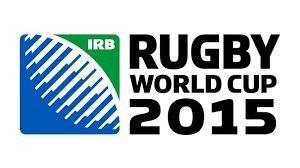RWC 2015 most competitive to date
Updated | By ANA
Rugby World Cup 2015 was the most competitive to date, according to a comprehensive game analysis report published by World Rugby on Thursday.

Hosted in largely excellent weather conditions on superb pitches, a compelling tournament was characterised by Japan’s victory over Saturday on the opening weekend, highly competitive matches between the top-ranked teams and emerging rugby powers and a knock-out phase that bucked the trend and delivered more tries than any previous Rugby World Cup.
Positive, competitive rugby was also a major factor in contributing to full and vibrant stadia and the most spoken about sporting event of the year, with Japan’s win over South Africa, Argentina’s win over Ireland and the final being some of the most spoken about matches.
The detailed report, compiled by World Rugby Game Analysis, details the trends behind New Zealand’s success in becoming the first team to defend successfully the Webb Ellis Cup.
It also outlines why, through a return to attacking, positive play, rugby was the real winner during 44 days of compelling action across 13 venues the length and breadth of England and in Cardiff.
Among the key findings were:
RWC 2015 was the most competitive tournament to date with the lowest average winning margin of any previous tournament (22 points v 30 points in 2011).
RWC 2015 saw the most competitive performances from tier two teams with two rankings upsets and the lowest average winning margin between tier one and tier two teams (31 points v 37 points in 2011)
Southern hemisphere teams were more effective at scoring tries, accumulating 50 per cent more tries than penalty goals, while northern hemisphere teams scored 50 per cent more penalty goals than tries
Tries continued to win matches and in more than 80 per cent of matches the team scoring the more tries won the match
High-scoring defeats were dramatically reduced with 65 points the highest tally scored by a team in a match, making it just the 32nd highest in RWC history compared to 87 in 2011 and 145 in 1995, the largest defeat to date
Tries were back in fashion with an average of five tries per match in the knockout stages and five tries in the final, which is the highest since Rugby World Cup 1987.
World Rugby also said one of the most enduring and most celebrated highlights of the tournament was the performances of the likes of Japan, Namibia, Georgia and Romania, who inspired and captured hearts and minds with their superb performances across the pool phase with a fairer match schedule, longer preparation time and greater investment in technical structures major contributors.
Other stats:
Ball in play has increased by 26 percent to an average of 44 percent per match
Passes have increased by 40 percent from 201 to 282
Rucks have increased by nearly 90 percent from 94 to 178
Kicks have decreased from 59 to 39 per match
Scrums have more than halved from 23 to 13 per game.
- ANA
Show's Stories
-
'Don't mess with my dad': Girl's version of classic song
This daddy-daughter duo reworked the lyrics of the popular 2002 song by ...
The Workzone with Alex Jay 3 hours ago -
Crocodile wors anyone? A popular meat choice for many in SA
Would Crocodile Dundee give the thumbs up to crocodile wors?
The Workzone with Alex Jay 3 hours ago